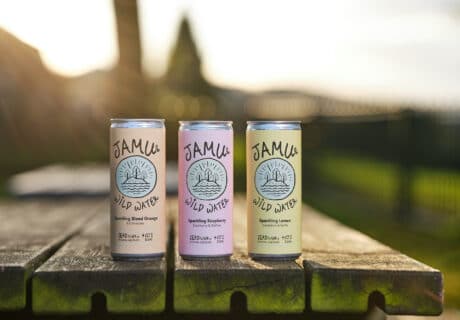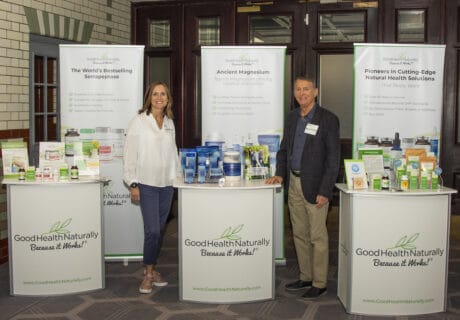Three months after delivering an open letter to Boris Johnson, calling for urgent reversal of the Government’s decision to lift the ban on harmful neonicotinoids, the next move in Anabel Kindersley’s ongoing campaign to protect the UK’s bee population was a symposium held at Camley Street Natural Park, London.
The co-owner of Neal’s Yard Remedies, who is calling for a ban on all uses of toxic neonics in the UK, brought together likeminded British businesses and organizations at the educational symposium on 21 June, to rally further support for the wider campaign and ‘address the devastating effects of these harmful pesticides on our bee population’.
With a long-standing history of campaigning for declining bee species, Neal’s Yard Remedies is no stranger to taking action for environmental causes: in 2011 the company launched its Save the Bees campaign, raising £250,000 for bee-friendly causes through sales of its Bee Lovely collection; in 2013 it delivered a petition to No. 10 Downing Street with 117,000 signatures; its most recent letter to Johnson in March had the support of 55 British organizations and brands; and over the past decade Neal’s Yard Remedies has helped save 56 million bees through charity partnerships.
At the symposium environmental writer and broadcaster Lucy Siegel chaired a panel of experts – including Helen Browning OBE, chief executive of the Soil Association; Paul de Zylva, senior analyst at Friends of the Earth; and Professor Dave Goulson – who joined Kindersley to ‘explore tangible ways of working with nature to protect our precious pollinators’. Through ‘stimulating discussion and insightful debate’ the panel called on all stakeholders present to ‘leverage their collective power and reach to raise awareness and help incite change’.
The amount of neonics used in one hectare of sugar beet is enough to give a lethal dose to 15 billion honeybees
“Without bees and other pollinators, we risk the production of honey and many other crops. Bee products are important inputs for many businesses, including the British beauty industry. We use these as key ingredients in skin and hair care, fragrances and perfumes. Protecting a small number of farmers from economic losses needs to be balanced against the true value of nature across all sectors of the economy, including this country’s £28 billion beauty industry,” commented Kindersley.
A collaboration with Bella Freud was also announced as part of the campaign; the British designer has created an exclusive T-shirt in her signature style to support the cause and ‘pay homage to the humble yet vital bee’. All proceeds from sales of the classic white T-shirt will be donated to bee conservation and nature-friendly farming initiatives.
Neal’s Yard Remedies has set up a new online petition to save the bees by cutting hazardous pesticides and supporting nature-friendly farming.
Key comments from the panellists:
“The amount of neonics used in one hectare of sugar beet is enough to give a lethal dose to 15 billion honeybees – that’s about twice as many honeybees [as] there are in the UK. That only applies if all that pesticide comes into contact with bees … but it does illustrate the scale of the toxicity.” Dave Goulson, professor of biology, University of Sussex
“Neonicotinoids don’t just harm bees and other pollinators, they persist in the soil for years, so for the sake of a sugar high now, are we are really going to sacrifice the goodness of our soil, our insects, our birds and our nature? The good thing about business is we can innovate, problem solve and tax raise, so we can support farmers. I want this to be a positive campaign, to help them [farmers] to find a way out, wean them off, and move away from negative and destructive ways. Neal’s Yard Remedies pioneered certified organic skincare, and one of the reasons we did this is because we wanted to protect nature.” – Anabel Kindersley, co-owner, Neal’s Yard Remedies
“If we tackle these issues one by one, we find out 20 years too late, we get that ban 30 years too late, and the damage has been done – and it is time to stop.” – Helen Browning, CEO, Soil Association
“We have been reporting on the decline of nature for decades. There’s something wrong with the way that Government works, and arguably the way the economy works, if we keep putting off things that are important, that underpin the success of society and the economy.” – Paul de Zylva, Friends of the Earth
“We need to choose between another 20 or 30 years, perhaps, of farming outside of nature’s limits, with the help of pesticides, or we can farm within nature’s limits ad-infinitum.” Andy Cato, regenerative farmer












